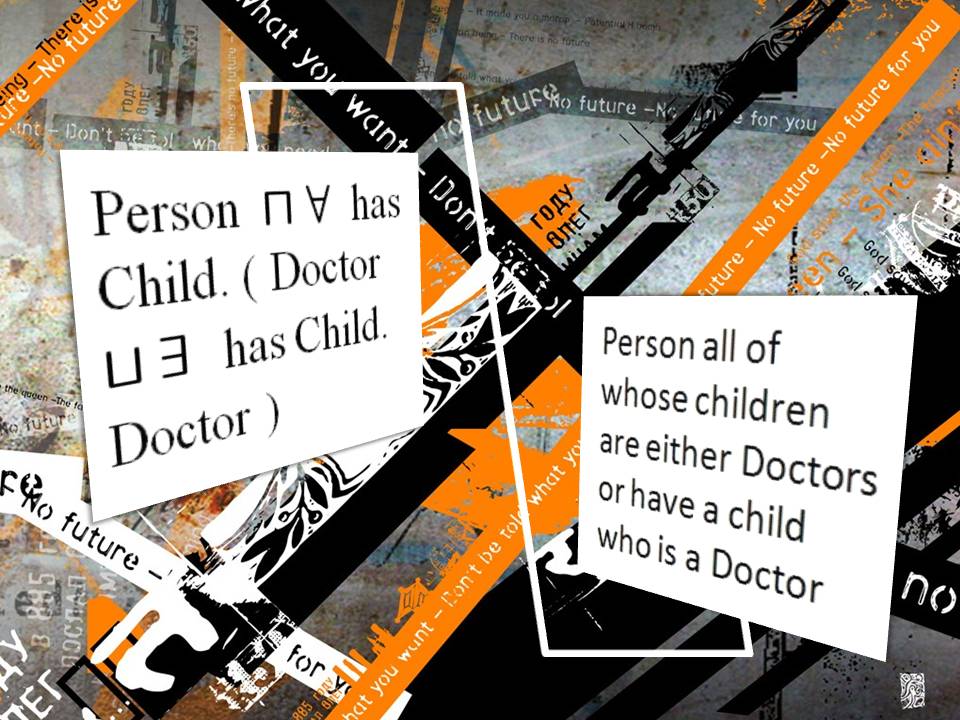A Phiposopher in every organization
Philosophers have expertise to interpreter the role of Knowledge Engineer

As far as the knowledge of a company grows, also difficulty in accessing and effectively use it increases.
The number of things and facts that should be accounted for in the knowledge base of any organization gets continuously greater – new laws, rules, practices as well as changes in the economic, social and technological scenario make them appear, and new additional or revised categories are needed to properly comply with new requirements and interests.
The quantity of information flowing through offices too increases – workers may not get aware of everything could be relevant to their work.
Assets and personnel of the company may be spread over the planet and there is neither time nor money to have people travelling from place to place to explain novelties and teach how to deal with them.
Yet, the greater richness of today and tomorrow society is its store of knowledge. It is just a pity that to use it stays so difficult in spite of large expenses to deploy state-of-the-art information & knowledge management systems. The weak point is the interface between knowledge and users like the workers of a company. Such an interface should be much more than the on screen output of an IT service.
Decades ago there were eldest workers who had care of newcomers by transferring them day by day their knowledge while working together. An eldest worker could give also proactively an information, a hint to a newcomer about something that s/he perhaps would not even consider. Because the eldest worker not only has knowledge but is also a wise in that job.
Nowadays, instead of eldest workers, too urged on to accomplish their tasks quickly and efficiently, there are training courses for classes of rookies and, most of all, IT services that should help them in productively using the store of knowledge gathered over time within the organization. But in order to access, discover and use this knowledge, they must foresee what is to be found so as to pose the right query to the system – otherwise they will waste their time with noise, especially thanks to “maybe you are interested also in” utilities. That is the inescapable consequence of so-called semantic technologies, at least as far as the semantics is that of natural languages in which knowledge is typically encoded.
The key to render knowledge management systems really effective is to recover that part of human knowledge that usually gets lost: wisdom. That is the interface one really needs! It needs a sort of wise who not only gives answers, but also helps to formulate questions, since he knows things and knows when they are needed. That is also the reason why we say “a philosopher in every organization”.

The philosopher will not be the company sage. S/he will help you to build your own wisdom management system. That will be your sage! It will help your workers in sharing effectively their knowledge and competencies, while the philosopher stays shoulder to shoulder with workers, collects experiences together with knowledge, give them the proper formal dress and put them into the system in such a way that punctual information will easily flow towards who needs it.
It is precisely this new professionalism who owns the right skills to properly “teach” a machine about human knowledge, thanks to prior deep understanding of human mind, and then for the ability to formalize the relevant part by abstracting from contingent aspects, such as a particular natural language first of all: the right language for knowledge sharing through computers is just that of Logic.
It is precisely over a basis of logically structured knowledge that automated inferential reasoning assures certain answers instead of a range of probably relevant results. So that computers can directly use and offer knowledge instead of pointing to documents to be read and studied. No need to teach a computer to deal with a human language in which knowledge is encoded. We teach the computer just the pieces of information and weave out knowledge.
That which is needed is not a completely new professionalism, since there is already people whose task is to formalize knowledge in order to ‘feed’ a knowledge based system – they are usually called knowledge engineers. The difference however lies in the specific preparation and perceptiveness of these personnel: they do not simply formalize knowledge. They are there to observe, investigate and discover what is really useful and worth to be stored in the knowledge base of your organization.
The philosophers that we propose you are able to conduct an inquiry on your specific activity, not relying exclusively on that which you and/or your selected experts have told them. They study your activity and observe your workers, and then deliver a modeling of the knowledge that the organization, as a whole, uses, operates on and needs to effectively and profitably share.
You may check and discuss the proposed modeling directly with the persons who have made it. You will be able to hear full explanations about why something has been represented in that or that other way. You will always keep the control on what is going on with the most precious asset of your organization – its knowledge – since we want precisely to make you able to better use it. We are not going to sell black-box services.
The structure of the knowledge base can be continuously modified – our approach allows for that – so that it will be able to account for new emerging needs and business interests by integrating at very low cost additional elements to the description of your organization and to the representation of its knowledge.
Such a knowledge base will never become obsolete. Even if the technologies change, it needs not to.
As well as the knowledge base keeps on serving you and your business, also our professionals will stay in your organization to maintain the knowledge services, also by upgrading the KB as soon as they identify new elements to be recorded. They will not be there just to accomplish a single project, rather they will accompany your organization towards the Knowledge Economy.
Moreover, our professionals, who are knowledge engineers and philosophers at the same time, will bring flexibility together with wisdom to the interface of the IT systems – which surely contain the largest part of the knowledge of an organization. Every knowledge representation depends on a particular point of view. But a philosopher may offer her ability to compose multiple different perspectives over the same, single base of knowledge expressed in the universal language of logic.
Different perspectives may be interesting for different areas of the same organization or different business activities – even for different customers of your organization – so that the same knowledge can be expressed, displayed, communicated to the different audiences in the best fitting way for each one. Imagine a system that knows what different kinds of clients are interested in and that gives them precisely what they look for. And imagine the benefit for the business-to-business relationships of your organization.
by Luca Severini, March 2012, Rome, IT